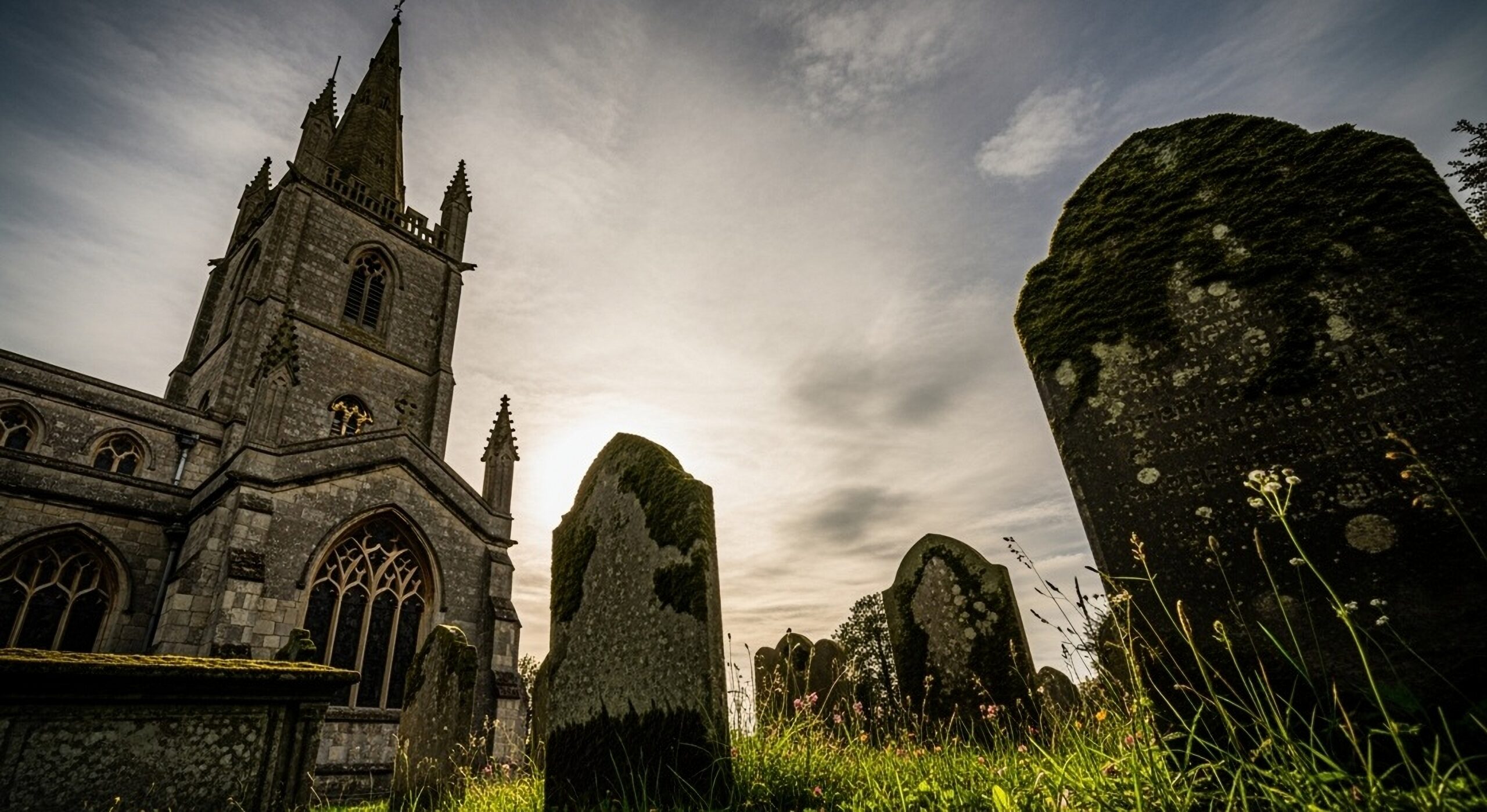
Why Investigating Churches and Their Graveyards Is Inappropriate
Churches are often steeped in history, their ancient walls echoing with centuries of worship, joy, sorrow, and remembrance. With such emotional and spiritual energy embedded within them, it’s no wonder that many ghost hunters find churches to be intriguing locations to explore.
However, despite their historical and spiritual significance, investigating churches that are still active places of worship is something we strongly advise against—and here’s why.
Sacred Ground and Spiritual Intent
Churches are places of worship, sanctuary, and reflection—often still active and deeply meaningful to congregations and communities. Their primary purpose is not historical preservation or tourism, but spiritual connection and healing. To enter such a space with the intent of conducting a paranormal investigation without written permission from the local vicar or churchwarden fundamentally disrespects the site’s purpose and sanctity.
This includes the Church’s Graveyards; they are not haunted playgrounds—they are places of mourning and remembrance. The individuals buried there, and their families, deserve peace and privacy. Investigating graveyards, especially without explicit permission, risks turning deeply personal spaces into entertainment, which is both ethically questionable and emotionally insensitive. Through our work consulting heritage locations, we know that vicars, churchwardens, and volunteers find the practice of investigating their religious home deeply upsetting, disrespectful, and sacrilegious.
Ethical Boundaries
We ask you to consider the message it conveys to others, especially younger or less experienced investigators. Continued investigation of these sites of worship has normalised this behaviour.
Last year, it came to our attention that a church was used for a three-night paranormal livestream, illuminated entirely in red light. The elderly church warden, who had lovingly cared for that sacred space for decades, was left in tears when she was notified of what had happened. She was not only heartbroken, but angry. For the first time in living memory, she now feels compelled to lock the doors every evening—doors that, for centuries, had remained open for anyone seeking comfort, prayer, or quiet reflection.
This was not just a building. It was a sanctuary. A place of solace for the grieving, the lost, and the faithful. And now, that quiet refuge has been disturbed.
As paranormal investigators, regardless of our beliefs or intentions, we must hold ourselves to a higher standard. We must respect others’ spaces—especially those considered sacred—with the same care and dignity we hope others would show to us and our work.
Imagine walking into your own place of safety, your retreat from the chaos of the world—only to find strangers in the dark, calling out to the unseen, changing the atmosphere, and leaving you feeling violated and unheard.
We must never become the reason someone feels their sanctuary is no longer a safe place.
Let us never forget: with access comes responsibility, and with belief comes compassion.
Focus Your Energy Elsewhere
There are many other locations rich with paranormal history that don’t come with the same ethical complications.
In Summary
While churches and graveyards may appear attractive to those seeking spiritual encounters, they are not appropriate locations for investigation. As professionals—or even as curious explorers—we must hold ourselves to higher ethical and energetic standards.
Respecting the living means respecting the dead. And sometimes, the most powerful thing we can do as investigators is to know when not to investigate.

